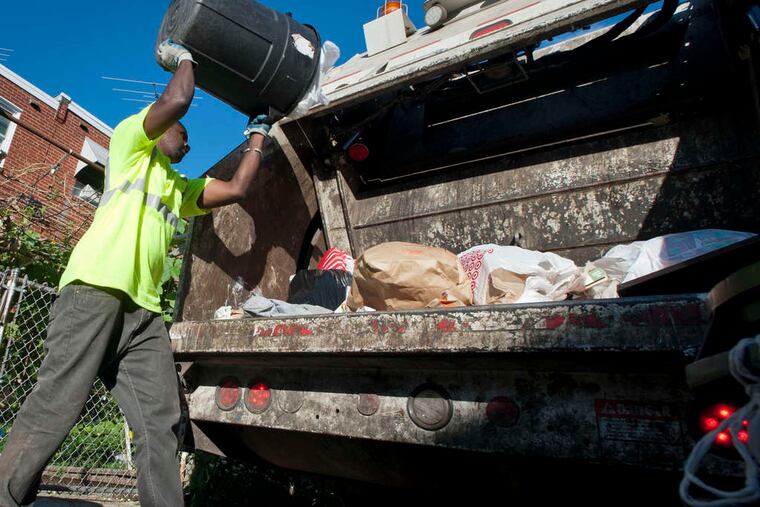Can tech companies help Philadelphia cut down on trash? City officials hope so.
The goal is for Philadelphians to quit producing so much waste, and now city officials are turning to private technology companies to help.

The goal is for Philadelphians to quit producing so much waste, and city officials are now turning to technology companies to help.
In the city’s first so-called pitch and pilot challenge, it’s asking tech developers to propose innovative ways to track and reduce waste, diverting it from landfills and incineration.
Companies can pitch their solutions in the coming weeks, and the winner will get up to $34,000 from the city to pilot its program in the first half of 2020. The city’s Office of Innovation and Technology hopes to repeat the process to tackle other problems.
“We know that Philadelphians often identify litter and waste as a key priority," so it made sense to choose waste reduction as the first challenge, said Joanna Hecht, the Office of Innovation and Technology fellow who is helping lead the pitch and pilot program.
As opposed to issuing a request for proposals, the city’s typical procedure for outside contracts, which requires specific and often exacting parameters, pitch and pilot will allow companies to present a variety of ideas.
“We’re constantly getting people reaching out, having these great ideas," said Nic Esposito, director of the city’s Zero Waste and Litter Cabinet. “It’s weird to start thinking, ‘How do I write an RFP that fits that in?' Just kind of casting that wide net and seeing what comes back to us is really exciting.”
The Zero Waste and Litter Cabinet is working to reduce and divert waste created by the city, businesses, and households, and Esposito said the pitch and pilot challenge will discover innovations that fit those goals. For instance, competitors may pitch programs to better track how much waste is produced and how much is recycled or composted, to encourage behavioral changes, Esposito said.
Esposito said metrics often focus on the amount of waste that is diverted from landfills for recycling or compost. A question that may be even more important, he said, is: “How do you recognize, track, and kind of lift up the businesses that are just not producing waste in the first place?"
Mark Wheeler, the city’s chief information officer, said the challenge is intentionally vague and open-ended. A proposal could be small, focusing on just one block, or larger, he said.
“It’s to leave all of the opportunities on the table so we’re not being overly prescriptive,” Wheeler said.
Andrew Buss, deputy chief information officer for innovation management, said the city hopes to use this model for other problems and to create a way for vendors who are marketing tech tools to approach the city with their ideas.
“We really don’t have a good way of doing that right now," he said.
The city is accepting questions about the challenge through Thursday. Written proposals are due Jan. 16, and officials plan to hold a pitch event in late January before selecting and contracting with a winner in February. The winning pilot would launch in March and end in June.